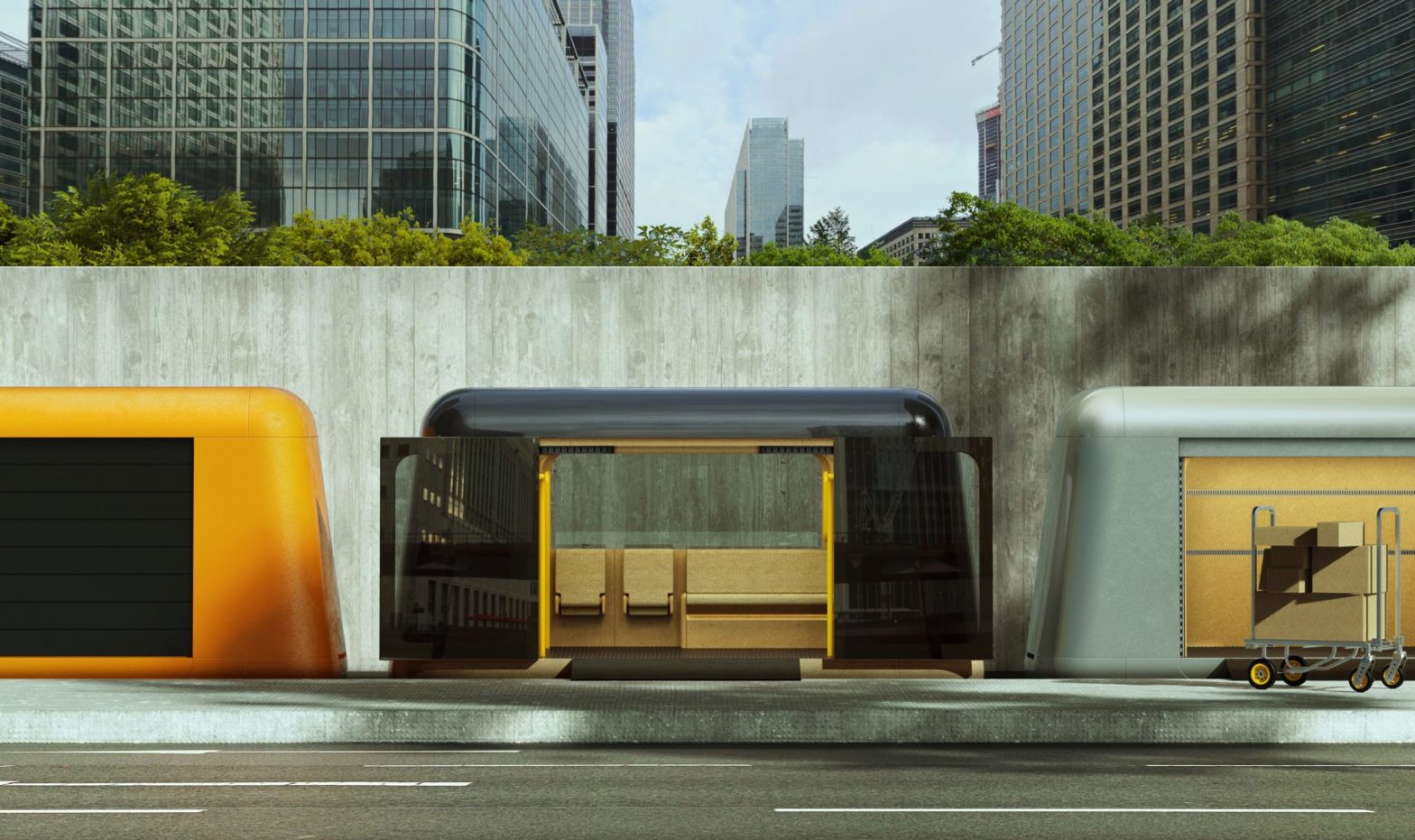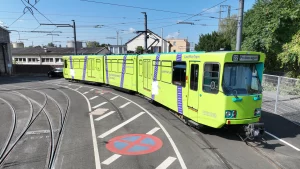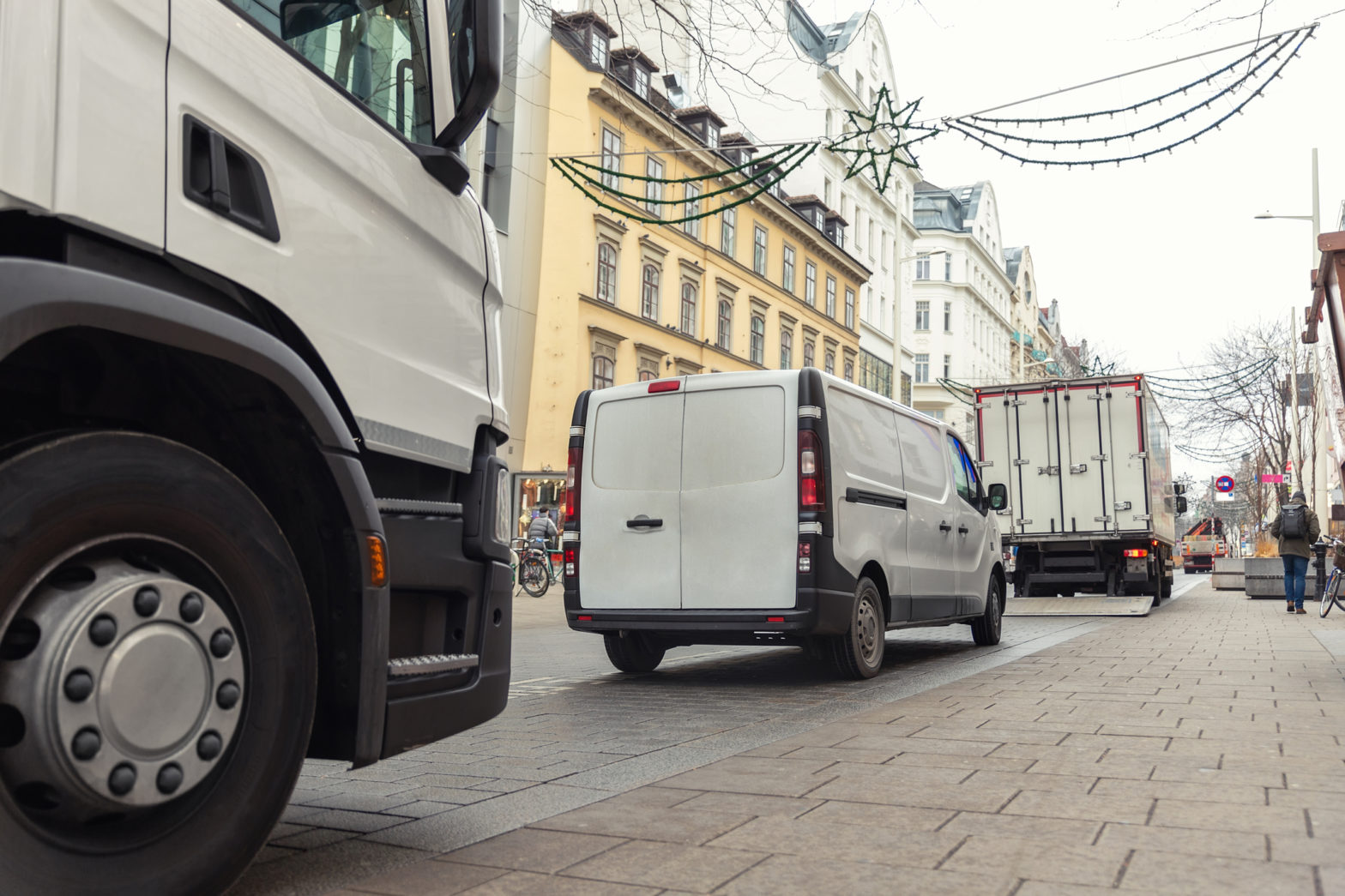
Photo: Cargo
Could tramways help cities to tackle freight?
21 November 2024
by Christopher Carey
Copenhagen-based venture studio Fragile is developing a new self-driving tram carriage dubbed ‘Cargo’, which it says could reimagine how goods travel across cities.
The company claims that by using self-driving tram pods that operate along existing tracks, cities could help alleviate congestion by taking deliveries off the road.
While the concept is still in its early stages with a prototype yet to be built, Fragile’s CEO Lukas Kauer told Cities Today he believes there is potential to make more use of existing tracks.
“I think one thing that is very important is to ensure it doesn’t disturb regular passenger transport, but by looking at peak/off-peak times, we think cities can introduce these pods around existing trams.”
The company says the terminus of tram lines could become logistic hubs and once packages reach the city centre they could then be collected and distributed, adding that one major benefit of its proposal would be the self-driving nature of the carriages – which could help combat driver shortages.
Kauer says he has had some “preliminary conversations” with engineering consultancy Ramboll and is now looking for cities interested in developing a pilot.
Looking into the detail, the company says the loading/unloading of goods on their service would need to be done in a another location along the track, rather than at passenger stops.
“Most likely there would need to be small stops that are just for cargo, instead of the unloading of cargo exactly at the same stop as the passenger,” added Kauer.
“This could be at smaller, well placed cargo drop-offs that are more aligned with the infrastructure needed for vans, because often passenger stops are in very dense areas with a lot of people walking and in and out.”
Could it work?
Analysis from the World Economic Forum indicates that urban last-mile delivery emissions are on track to increase by over 30 percent by 2030 in the top 100 cities globally, and without intervention, these emissions could reach 25 million tons of CO2 emitted annually by 2030.
Several cities across Europe have already explored using trams to deliver goods, though autonomous carriages have yet to be developed.
In 2000, the German city of Dresden launched a freight tram which carried automotive parts across the centre to its Volkswagen factory, delivering 300,000 tons of goods a year with ten daily trips before being axed in 2020 following a revision of the car manufacturer’s logistics operations.
Zurich currently operates a service where a designated tram collects bulky recycling waste and transports it to the main disposal centre on the edge of the city.

In September, Amazon announced a new initiative in Frankfurt dubbed the Gütertram, which shuttles packages to the city centre.
The pilot is part of the LastMileTram RheinMain V research project at the Frankfurt University of Applied Sciences (Frankfurt UAS), together with Verkehrsgesellschaft Frankfurt am Main (VGF) and Intermodal City Injections (a collaboration between Amazon Transportation Services and Amazon Logistics).
Using vans from its depot to deliver goods to the first tram stop on the outskirts of the city, the company then shuttles goods by tram to the centre before being picked up by cargo bikes for the ‘last-mile’.
Amsterdam
In looking at autonomous carriages, Kauer believes Amsterdam could be well suited given its innovative nature and the fact that the city has already experimented with cargo trams.
“We haven’t spoken directly with the city, but have been close with the AMS Institute – a public-private innovation lab – who have actually already worked with the city to give licences out [to cargo operators] to operate on the tracks.
“The problem was that the companies that applied [for the licences] all had the same approach, to put very long vehicles on the tracks, but of course when you don’t have full capacity then you lose money operating them, so that’s why it actually never happened.”
In 2007, the city allowed a firm, City Cargo Amsterdam, to trial a service from 7am to 11pm, sharing tracks with passenger trams.
Goods were offloaded at designated points and then transferred to electric vehicles for last-mile delivery, with the ultimate aim of cutting congestion and emissions.
While the initial phases of the trial were a success, the scheme was scrapped in 2009 after the company failed to secure sufficient funding.
According to Kauer, the conventional nature of the trams in the scheme were too costly for a private firm to handle alone.
“The city was ready to actually do it and I think they still are, but they haven’t really found a suitable solution.”
Image: Fragile







